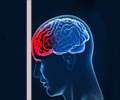Highlights
- Concussion is a minor form of traumatic brain injury which usually occur among athletes.
- Scientists find new biomarker to diagnose concussion.
- New biomarker measures the brain’s activity of processing sound. This helps to diagnose concussion.
The research study was published in the journal Nature, Scientific Reports.
Nina Kraus, the Hugh Knowles Professor in the School of Communication and director of the Auditory Neuroscience Laboratory, said, "This biomarker could take the guesswork out of concussion diagnosis and management."
"Our hope is this discovery will enable clinicians, parents and coaches to better manage athlete health, because playing sports is one of the best things you can do."
Research Study to Find New Biomarker for Concussion
The research team observed the brain activity of 40 children who were exposed to auditory stimuli. They found a distinct pattern of auditory response in children with concussions when compared to other children without concussions.
The study findings found an average of 35% smaller neural response to pitch in concussion children and were able to process pitch back to normal when they recovered from the injury. This allowed the researchers to devise a reliable neural profile.
She also said that the discovery is not a global disruption to sound processing but it is like turning down a single knob on a mixing board.
The author also said that the main aim of the discovery is to produce a reliable, portable, user-friendly, readily available and affordable platform for diagnosing concussion. And the new biomarker may help to measure the brain’s activity of processing sound and how that has changed due to concussion.
She also added that the results cannot be misreported as one cannot fake results on how the brain works.
Facts on Concussion
- Concussion is a mild form of brain injury which is caused by a blow or jolt to the head.
- Sports injuries (football, rugby, hockey, basketball), accidents and falls are some of the common causes for concussion.
- Around 3.8 million concussions occur every year, according to the Centers for Disease Control and Prevention.
- Only 1 out of 6 concussions are diagnosed each year.
- In the United States, about 300,000 concussions occur in athletes each year.
- Wear seatbelt when you drive a car.
- Avoid using uneven or unpaved surfaces for skating or riding bicycles.
- Wear protective gears and sporting equipments while playing sports to avoid head injury.
- Do not dive when the water is less than nine feet deep.
- Installing handrails may help the elderly to prevent falls.
- Concussion - (https://medlineplus.gov/concussion.html)
- 11 Facts About Concussions - (https://www.dosomething.org/facts/11-facts-about-concussions)
- Concussion- Patient information - (http://www.aans.org/patient%20information/conditions%20and%20treatments/concussion.aspx )
Source-Medindia






